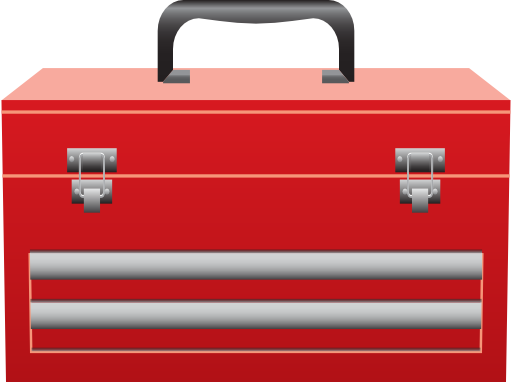What is the Knowledge management solution? That's a question that's been debated for two decades, but I would like to take a high-level approach to the question and ask - is the solution a tool, a toolbox, or a management framework?
 |
| Image from wikimedia commons |
Is it a tool?
Many organisations start the knowledge management journey believing that the solution to Knowledge Management is a tool. They introduce Yammer, for example, and hope that the connectivity we see in the world-wide web via Twitter will translate into sharing of valuable in-house knowledge. Or they buy a wiki, or knowledge-base software, or get SharePoint, and expect that an in-house equivalent of Wikipedia emerges.
Of course the problems are not solved. One tool does very little to dent the huge issue that is KM. KM has many aspects, and expecting one tool to deliver KM is like buying a hammer, and assuming your home repairs will all be sorted.
Is it a toolbox?
Pretty soon, people realise that one tool does not solve all problems. This is especially true when it comes to KM process - there are a suite of processes that can be applied in different situations; from Peer Assists to After Action Reviews, to Knowledge Exchange circles, and so on. Any one such process is not enough, you need a suite. And the technology tools very rarely stand alone, no matter what the vendors tell you. Any KM technology that claims to be a Jack of All Trades is really a Master of None. Different KM needs require different (though linked) technologies to satisfy them.So the companies build a toolbox. "Here are the KM tools" they tell the knowledge workers - "Use them when applicable". Most of us have such a toolbox in our house, for home improvements. Most of these toolboxes (other than those owned by the enthusiasts) linger untouched in the basement or garage.
The same is true of the KM toolboxes. The enthusiasts use them, but they never get into the mainstream.
Is is a management framework?
Yes, it is. Tools don't get used regularly unless people know how to use them, when to use them, and realise its their job to use them. The framework you need for Knowledge Management includes not just a listing of the processes and technologies, but a definition of when they are expected to be used, and by whom. The framework adds the governance element (the expectation), and the roles element (the "by whom") to the processes and technologies. The ISO KM standard, ISO 30401, is based on the view of KM as a management framework (they call it "management system").
This management framework defines how KM is embedded into the work process and into the accountabilities in the organisation. Instead of the toolbox lying unopened in the garage, it is brought in and put on the table; made a part of how you work.
If we stick with the analogy of tools, you can imagine an operating theatre as an example of a framework. Yes, the surgical tools are vital, but the surgical toolbox alone does not result in effective operations. You also need the roles (the surgeon, the anaesthetist, the theatre nurse) and the governance (the expectations on each party, the support and training they have, the checklists they use, and the metrics that are gathered). Just having a box of surgical tools does not mean that you can perform effective surgery.
Knowledge Management is not heart surgery - it is far simpler and far easier. However it still needs to be addressed as a management framework - not as a toolbox, and certainly never as a single tool.
Contact us for help in designing your Knowledge Management Framework




1 comment:
# Julie-anne Sewparsad
Like this it's true, in terms of my limited experience when i first heard about knowledge management, i thought "not another tool" The subject is very misunderstood.
Post a Comment